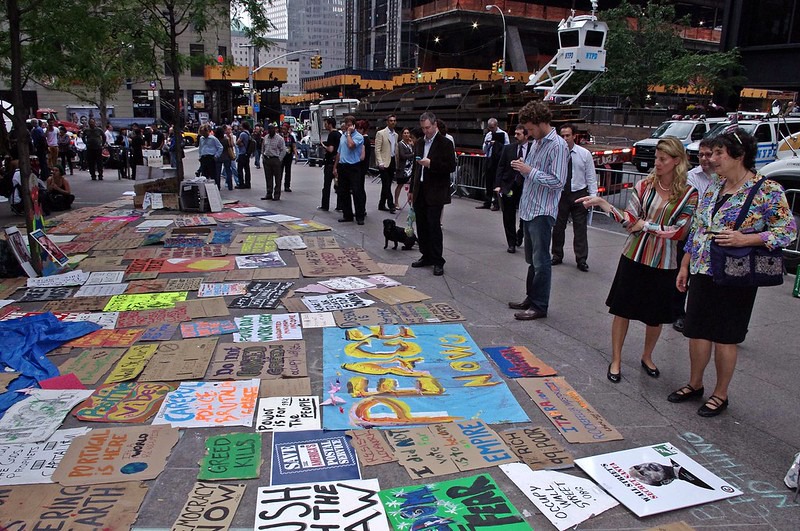February 4, 2012; Source: Worcester Telegram & Gazette | Does it make sense to look for possible ideological and political overlap and comity between Occupy Wall Street and the Tea Party, the two most significant social and political movements of recent years?
In a Rodney King-like “why can’t we all just get along” sentiment about the two seemingly very different movements, Christine A. Scheller , UrbanFaith‘s News & Religion editor, recently voiced her hope that the libertarians of the right in the Tea Party and the emerging libertarians of the left in the Occupy Wall Street movement would somehow find common ground.
Now, according to the Worcester, Mass. Telegram & Gazette, the Tea Party and Occupy movements have found a meeting of the minds. Tea Partiers and Occupiers in Worcester came together to protest provisions of the National Defense Authorization Act (NDAA), a bill passed by Congress late in 2011 and signed by President Obama, which allows for the indefinite detention of American citizens without charges.
Although Tea Partiers and Occupiers joined to decry the NDAA as unconstitutional, adherents of both groups tended to congregate at opposite ends of the plaza in front of the court house, despite their occasional statements of support and appreciation for each other, at least on the NDAA front. This is not the only such gathering of the two groups.
Sign up for our free newsletters
Subscribe to NPQ's newsletters to have our top stories delivered directly to your inbox.
By signing up, you agree to our privacy policy and terms of use, and to receive messages from NPQ and our partners.
Recently, in St. Petersburg, Fla., Tea Partiers and Occupiers came together to support the rescue of an old city pier that the City Council had slated for redevelopment. Speakers from both ideological wings cited the need for limited government and low taxes in support of their positions.
Also, in Jackson, Mich., a Tea Party leader wrote to the Occupy people to suggest the possibility of common ground between the two movements. He told the press, “We’re talking to each other and we’re figuring out that this is a big swindle that’s going on between the banks and the corporations.”
Will more Tea Partiers and Occupiers see themselves sharing common concerns, like those of both groups in Worcester, St. Petersburg, and Jackson? Or are the different styles of the movements too much to overcome? Are the Tea Party and the Occupy Wall Street movement elements of sharply divergent ideological visions of the future America, or are they part of a shared, populist angst aimed at big government, national political parties, big business, and Wall Street? –Rick Cohen













